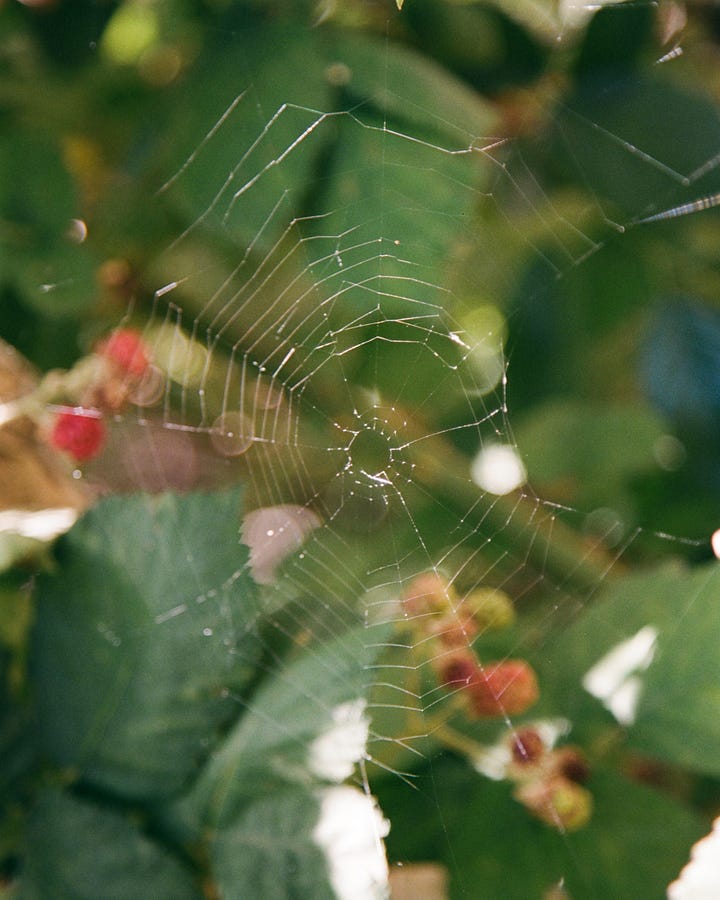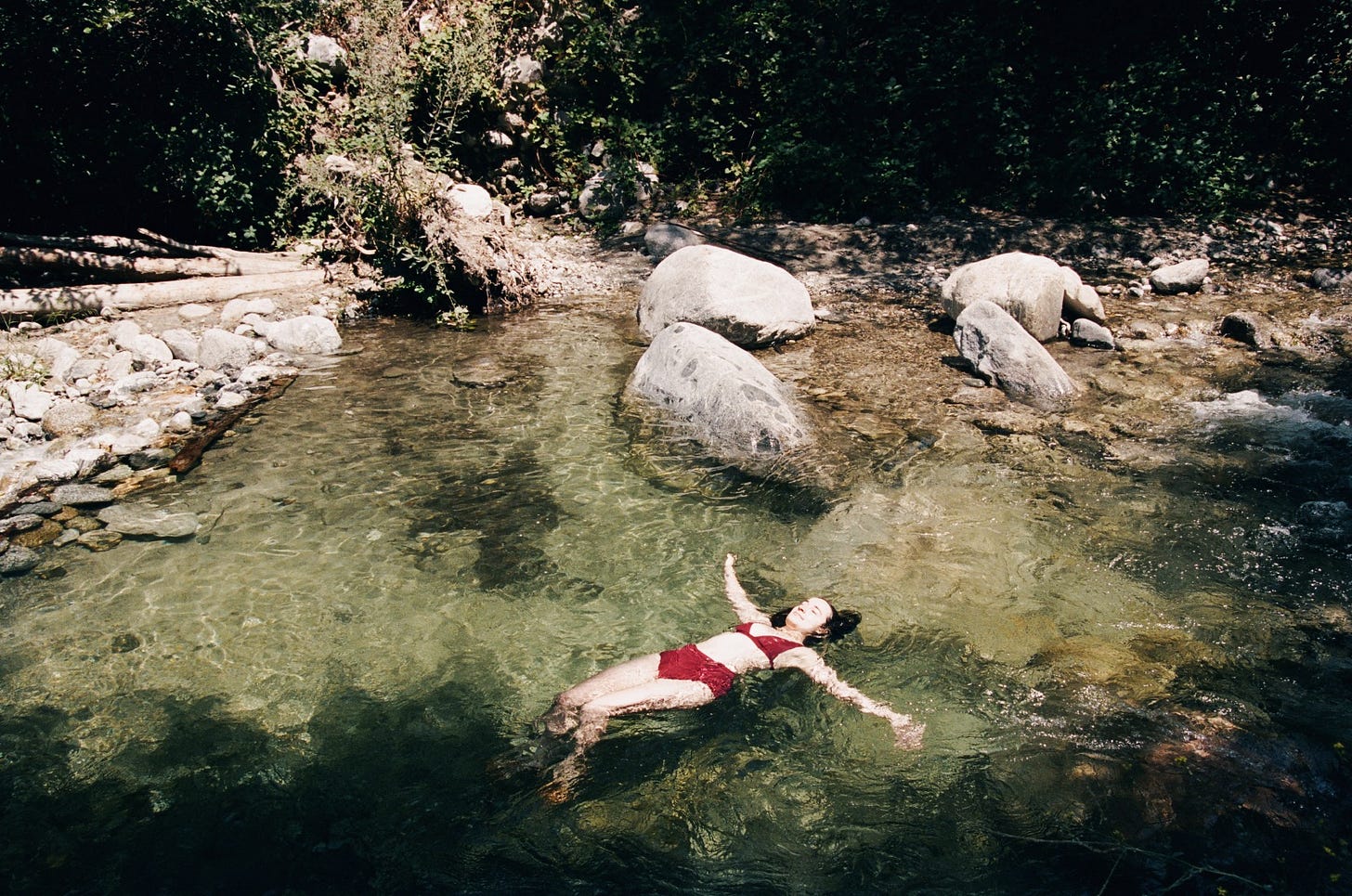How Strange It Is to Be Anything At All
Anxiety, the DSM, and the unexpected beauty of uncertainty.
In the DSM (Diagnostic and Statistical Manual of Mental Disorders), a mental health condition can be diagnosed when a set of symptoms causes 'marked impairment' in daily life. But how does one recognize ‘marked impairment' when no real reference point exists for what we consider ‘typical’ functioning?
Our millennial cohort has experienced our share of 'unprecedented' events—9/11, the Iraq War, the Great Recession, and the COVID-19 pandemic, to name a few. To say that we are familiar with instability would be an understatement; it is a constant presence woven into the intricate fabric of our lives. Our generation is adept at navigating the birth-death-rebirth cycles that define our existence, much of which can be attributed to our collective Pluto in Scorpio. But as a result, many of us are so overwhelmed by anxiety, depression, and other neuroses that stem directly from our earthly experiences that we often fail to notice they have become a problem. This is our normal, our familiar hell. We have seen the memes and pop culture references: millennials all have generalized anxiety disorder or persistent depressive disorder, pets who have subsequently absorbed the aforementioned disorders, and often look significantly younger than our age. Jokes aside, when everyone around you is similarly suffering, it can be hard to recognize it for what it truly is: a significant issue that hinders your fullest expression.
This is largely why I ignored my persistent anxiety for so long, pulling myself up by those godforsaken bootstraps everyone talks about and white-knuckling my way through the last several years of my career. Somewhere along the line, the visual literacy I acquired in art school mixed with an unhealthy desire to please everyone and morphed into a full-blown career in the social media industry, where I worked for a plethora of brands, companies, and corporations for many years. If I had been able to identify the feeling in the pit of my stomach after my first nine-to-five social media job as severe anxiety and accept that this might not be the right fit for me, I would have run for the hills long ago. But it took me nearly ten years to realize I was in the wrong place.
The nature of the social media industry is unsustainable for human beings1. It moves at a breakneck speed and, until about ten years ago, didn’t even exist as a viable career option. It's an industry constantly at the mercy of the instantaneous whims of algorithms and consumers. I am not built for this—none of us are. There may be a rare few who claim to lead relatively stress-free lives while working in this industry, but I suspect most of them are just saying it to be cool or contrarian. There is no world in which I, a mere mortal, can check all DMs, respond to all comments, and post for several (the most I could ever handle at any given time was 3) different brands and/or companies across all their respective platforms while maintaining my sanity. I still can't believe I could ever do this, and I want to weep for the past version of myself who believed she was faulty because she couldn’t figure out how to keep up. I internalized that as a failure for years and will spend several more undoing it.
Many don't realize they need a change until life knocks them down. Painfully. It can feel like a blow that comes from nowhere—one moment, everything seems fine, and the next, it doesn't. But when you probe deeper and lean into your emotions, you discover that something felt off from the start, and you ignored it because you wanted it to work so badly. Sometimes, we only see what we want to see.


Last month, my contract unexpectedly ended with a company that accounted for roughly 80% of my monthly income. I loved working there, so it was a sad ending for me, but upon further reflection, I realized that I would have never voluntarily left this position, even if it was severely harming my mental health. It was one of the best social media positions I have ever had, and I would only be in it for another year or so while I was in school—who was I to turn something like that down over a few panic attacks? Initially, I was terrified by this loss. With meager savings, a lot of student debt, and my wedding in October, losing most of my income was far from ideal. Although I'm still scared, the sense of calm I have felt over the past few weeks—the mental clarity, the silence—has been invaluable. I never realized how much radio static occupied my mental space nor how much energy I expended trying to balance everything until it was removed from my life. Working and going to school full-time had me up at 5 or 6 most mornings to read or write essays before the workday began. When I was too exhausted to wake up early—which was often—I devoted my evenings after work to more school. There were days when I spent ten to twelve hours in front of the computer, toggling back and forth between school and work to keep everything under control. I would end these days with my nervous system shot, my mind racing a thousand miles a minute, and my body craving food and sleep.
After losing the client, I have focused mostly on school for the last month or so. It feels illegal, like some deviant activity I should be hiding. How dare I lose a client and not find another one to replace them immediately! This isn’t allowed. And yet here I am, enjoying the new, slow pace of my days that feels so foreign to me—swimming in the middle of the afternoon, playing my piano, taking photos for no reason, writing, studying at my favorite library, reading, and feeling the evasive spark of creativity and inspiration in me once again. Work itself isn’t the enemy of a creative spirit, but fast-paced, relentless work with no rest and little room for expansion certainly is. Sadly, that is the nature of the majority of the social media industry. Even the best positions require you to be on 24/7 with no chance to truly disconnect from the frenetic energy of the digital world.
The creative spirit requires rest. Rest and leisure lead to boredom, questions, and creation, which stoke the fire of inspiration until the cycle begins again. Without rest, we cannot tune in and notice what is around us. This was what working in that industry slowly did to me over the years. It filled every second with stimulation and this sense of urgency to check check check, making it impossible for my mind to wander. And when our minds cannot wander, we become jaded and numb to the wonders of this stupidly beautiful world. In Milan Kundera's words, losing your sense of wonder “deprives [your] life a dimension of beauty.” Everything becomes one-dimensional. There is no depth to explore.
Apathy isn’t considered a pathology per se, but it can be a symptom of several, and up until about a month ago, I was consumed by it. In his TED talk, writer Andrew Solomon states, “The opposite of depression is not happiness, but vitality.” Before losing my job, I was in danger of losing my own vitality. I knew I had once been a creative, sparkling individual, but I didn’t know where she went. And once you lose sight of who you are, the road back to yourself is long and arduous. But I have learned to see this experience, this odd and messy period of my life, with new eyes, and being in graduate school has made it easier for me to embrace the beginner’s mind more readily. I will need to find another job at some point before my small savings run out, but this stretch of time I have been given just to be has been an unexpected and profoundly healing gift. I never imagined I would gain so much from losing something—but such is life and the beauty of uncertainty.
“Now I know that uncertainty is the greatest miracle of all. When we open ourselves to the possibility of error, a blessing can arrive that we never imagined possible. The oceans can part and offer a way forward. A question blooms season after season, yielding new flowers and new ideas. But an answer is solid. It bears only one fruit. And very often, it is the wrong fruit.”
— Sophie Strand, The Madonna Secret


